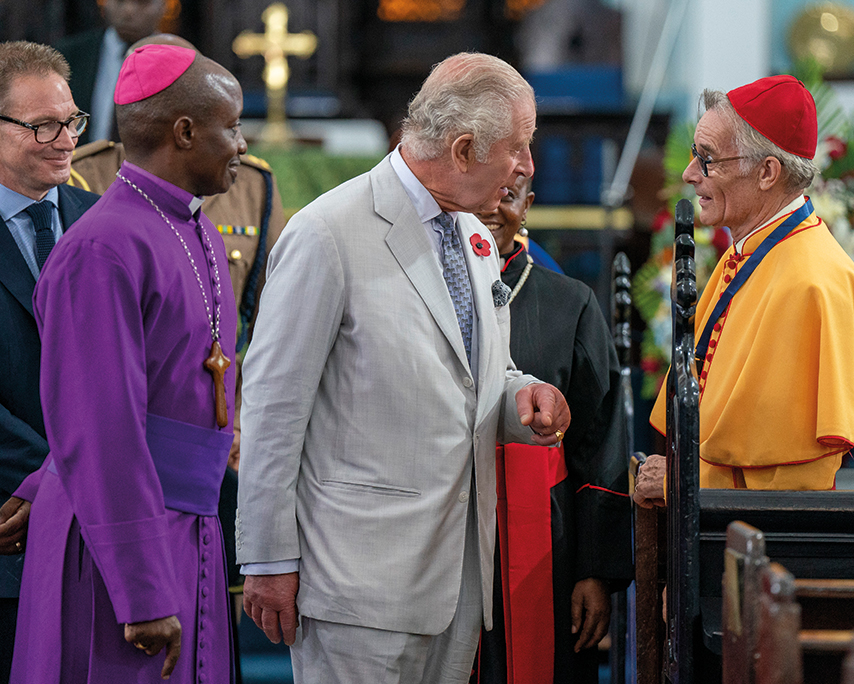International Day Commemorating the Victims of Acts of Violence Based on Religion or Belief
Interfaith and cultural dialogue in Africa’s digital space
In Africa’s complex and vibrant cultural landscape, religion and tradition remain deeply embedded in everyday life. Across the continent, multiple faiths, Christianity, Islam, African traditional religions, Hinduism, Judaism, and others, coexist in dynamic interaction. In many regions, this coexistence has been marked by harmony and mutual respect. In others, it has been shaped by historical grievances, political manipulation, or economic competition.
The arrival of digital platforms has added a new dimension to these interactions. Social media has become an informal meeting ground for people who may never cross paths in physical spaces. A young Muslim in Dakar can engage in real-time dialogue with a Christian entrepreneur in Nairobi, a traditional healer in Harare, or a human rights advocate in Cape Town. This kind of exposure has the potential to dismantle stereotypes, deepen empathy, and humanise communities often reduced to “the other” in offline narratives.
The digital space can amplify interfaith and intercultural understanding in ways traditional diplomacy or community meetings cannot. Live-streamed dialogues, virtual conferences, and collaborative online campaigns can reach millions, crossing the boundaries of geography, language, and even literacy through visual storytelling. Successful examples already exist. Interfaith youth initiatives have used Instagram and TikTok to highlight common humanitarian concerns, such as climate change, education, and poverty alleviation, through the lens of shared moral values. These initiatives demonstrate that faith communities can find common ground without erasing theological distinctions.
Cultural exchange, too, benefits from this connectivity. African creatives are using YouTube, podcasts, and X (formerly Twitter) to share music, art, and oral histories that celebrate diversity. Such expressions often carry embedded religious and moral values, allowing for a subtle but powerful form of cultural diplomacy.
Yet the same platforms that can promote understanding can also sow division. Digital spaces can amplify misinformation, conspiracy theories, and inflammatory rhetoric at a speed and scale previously unimaginable. In contexts where religious identity is politically sensitive, a single unverified post can reignite dormant tensions. Some extremist actors deliberately exploit these vulnerabilities, using online spaces to recruit, radicalise, or target individuals based on religious affiliation. In Africa’s fragile or conflict-affected states, these dynamics can have real-world consequences, including violence and displacement.
The challenge, therefore, is twofold: promoting open and respectful dialogue while safeguarding against content that incites hatred or violence. This balance is delicate since overly restrictive measures risk silencing legitimate faith-based expression, while too little oversight can allow harmful narratives to thrive unchecked.
The role of digital literacy and faith leadership
One of the most promising tools in strengthening interfaith and intercultural dialogue online is digital literacy. Citizens who can identify misinformation, verify sources, and engage constructively are less susceptible to manipulation. Digital literacy programmes tailored to faith communities could empower religious leaders to guide their congregations in navigating online spaces responsibly.
Faith leaders themselves have a unique role to play. Their voices carry moral authority within their communities, and when they use digital platforms to model respectful engagement, they set a precedent for their followers. This is particularly important for African youth, who consume and share most of the continent’s online content.
If nurtured carefully, Africa’s digital space can become an extension of its tradition of community dialogue. This requires collaboration between governments, tech companies, civil society, and faith-based organisations to promote algorithms and content moderation practices that reward constructive engagement. The goal is not to create a conflict-free digital environment. This is both unrealistic and undesirable. However, it is to foster a culture where disagreements are navigated with civility and curiosity rather than hostility. In this vision, the digital sphere becomes not just a mirror of Africa’s religious and cultural diversity, but a platform that actively strengthens the bonds between its communities.



